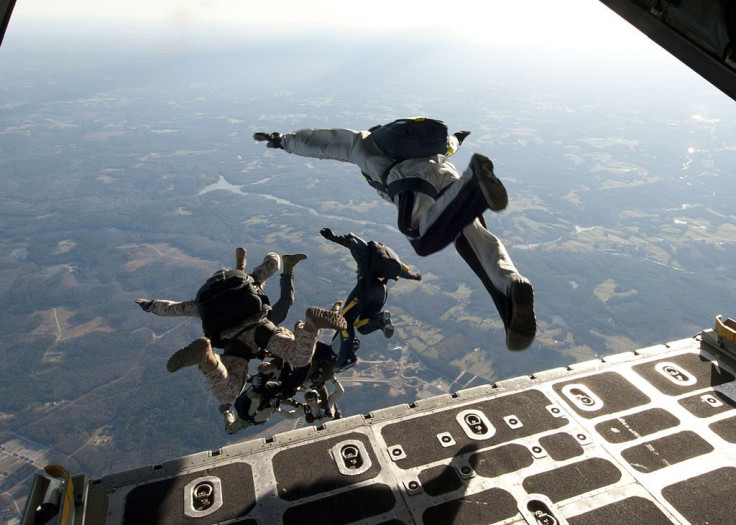Navy SEALs Have Become A 'Global Manhunting Machine' With Lax Oversight

One of the military’s most secretive special forces, which has played an outsize role in furthering American interests in Iraq and Afghanistan -- SEAL Team 6 -- has morphed into a “global manhunting machine,” the New York Times reported Saturday. The Times called this small group of about 300 troops known as “operators” and their 1,500-member support team one of the “most secretive and least scrutinized military organizations” in the U.S. The team was credited with killing al Qaeda leader Osama bin Laden in Pakistan in 2011 and has played an increasingly important role in the nation's combat strategy.
There's no doubt war has changed dramatically due to technological progress, the rise of terrorism and concerns about the safety of civilians over the past century. Now, targeted missions are often carried out through aerial strikes and small groups of highly trained specialists who are experts at tracking down militant leaders. That means Navy SEAL Team 6 takes on far more responsibilities today than the unit did in the past.
"Once a small group reserved for specialized but rare missions, the unit best known for killing Osama bin Laden has been transformed by more than a decade of combat into a global manhunting machine," the Times writes.
The investigation makes two key arguments that raise questions about the role special forces such as Navy SEAL Team 6 should play in waging America’s battles:
America's Special Forces Are Overused
SEALs were originally intended to complete only the military's most critical and dangerous operations but lately have become the go-to team for all kinds of missions for senior officials because the SEALs can skillfully execute tasks faster and more efficiently than other groups.
Bob Kerrey, a former senator and SEAL, told the New York Times the use of special forces is far more common than it used to be because SEALs are being asked to serve missions they would not have considered in the past. “They have become sort of a 1-800 number anytime somebody wants something done,” he said. The U.S. Special Operations Command told the newspaper special troops have conducted “tens of thousands” of missions since Sept. 11, 2001.
This practice raises a number of issues -- former operators on the team who were interviewed for the story said their targets began to blur together after conducting raids every night for weeks at a time. The Times investigation also cited several instances in which civilians were killed during SEAL raids, which some experts said are highly aggressive and lack clear rules of engagement.
SEAL Teams Need Stronger Oversight
SEAL Team 6 has been widely successful in executing covert missions that result in key killings of terrorist leaders such as bin Laden since 2001. Perhaps because of this success, military leaders as well as politicians have been shy to exert strong oversight of the group.
The Joint Special Operations Command, the division in charge of SEAL Team 6, for example, conducts self-evaluations of the program that one senior military officer who was not named in the story said were woefully inadequate.
Meanwhile, politicians have been wary of asking too many hard questions about what these teams are doing. “This is an area where Congress notoriously doesn’t want to know too much,” Harold Koh, a former legal adviser to the the U.S. State Department, told the Times.
The program’s high degree of secrecy and lack of oversight mean the missions SEALs complete “have become embedded in American combat with little public discussion or debate,” the Times said.
© Copyright IBTimes 2025. All rights reserved.






















